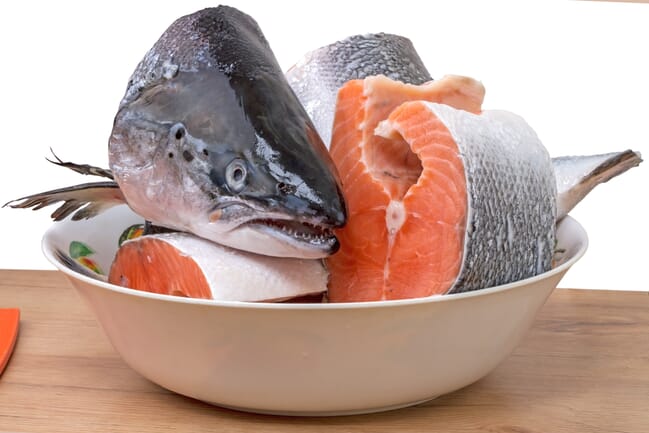
Published in the journal Marine Drugs, the research notes that valorising salmon heads could reduce waste, create new market opportunities and enhance sustainability. The research is part of the Fish Matter project, coordinated by B2E – Blue Bioeconomy CoLAB, based in Portugal.
The research team from the University of Aveiro — João Monteiro, Tiago Sousa, Ricardo Calado, and Rosário Domingues — analysed the nutritional profile of salmon heads. The findings highlight the potential of salmon heads, often discarded as waste, for various industrial applications, including food and nutraceutical production.
The study indicates a high lipid content, predominantly oleic acid, followed by palmitic, stearic and linoleic acids. In other words, the fats present in salmon heads offer health benefits and should be utilised. Oleic acid, also found in olive oil, helps lower "bad" cholesterol and has anti-inflammatory properties. Linoleic acid, an essential fatty acid, supports skin health and the immune system. Triglycerides provide energy and contribute to a balanced fat metabolism.
Beyond oil extraction, salmon heads can be used in aquaculture and agro-industry feed formulations. Other applications include biodiesel production and incorporating lipids into cosmetic and pharmaceutical products. The study reinforces the importance of transforming fish industry waste into valuable resources for different sectors.
Background
The Fish Matter project aims to reduce waste in the fish industry by promoting more efficient use of marine resources. To this end, a Smart Blue Bioeconomy By-product Valorisation Platform is being developed to connect producers, processing industries, technology providers, and scientific collaboration networks.
The goal is to support businesses and other stakeholders in identifying new business opportunities and establishing strategic partnerships by making use of underutilised resources such as fish heads, viscera, skins and shells.




